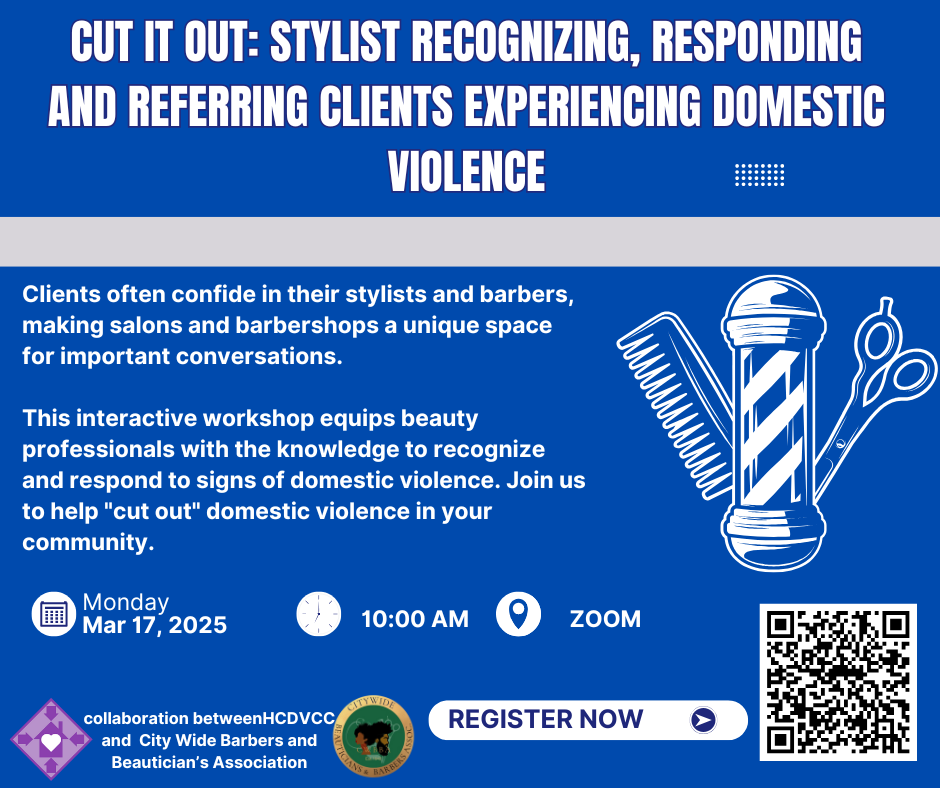
About five years ago, I was gathering my personal belongings after facilitating a session on domestic violence. I was approached by a woman and she introduced herself and shared that she was in her sixties and was attending college for the first time.
She then launched into how much she had taken away from the information that I shared, however, she related “it was really good, but you didn’t talk about the children”.
She then went to describe she and her older brother’s childhood. They had witnessed their mother’s verbal, emotional and physical abuse at the hands of their father. She and her brother were often also abused by their father and in the end; her father had killed their mother as she and her brother helplessly watched.
With tears in her eyes, she looked at me and said, “our lives were never the same.” Her brother had recently died by suicide and had been in and out of jail and addicted to drugs. She also had experienced drug/alcohol addiction.
Harris County Domestic Violence Coordinating Council recently awarded funding to fourteen agencies who are providing services to children who have witnessed domestic violence. This is an innovative strategy to address prevention of domestic and sexual violence.
Here are five benefits of supporting children and youth who witness domestic violence:
- Break The Cycle – violence in the home becomes a norm, exposing children and youth to healthy environment provides for the possibility something new and safer.
- Develop healthy coping strategies – when faced with trauma it is human nature to soothe oneself and some of those strategies might be unhealthy such as using food, drug/alcohol, promiscuity and other risky behaviors.
- Recognize healthy relationships – how do you identify “healthy relationships” when you have not been exposed to one? Working with children and youth to provide education about healthy relationships and to model things such as healthy conflict is empowering.
- Develop self-awareness – we often identify and see ourselves based on what we are exposed to. Over the years I have had conversations with young adults who are unable to see themselves as valuable because they believe that their parent’s reality is their reality.
- Validation – for the first time a child or youth is being recognized, and their voice is being heard. For the first time they are being given the space to acknowledge their own fears, anger and grief.
And in the end working with children and youth who have witnessed domestic violence is an opportunity to save a life.














 They rush the relationship and say things like, “I’ve never felt this way before” within days or weeks.
They rush the relationship and say things like, “I’ve never felt this way before” within days or weeks. Talk to someone you trust – A parent, school counselor, teacher, coach, or friend. You don’t have to do this alone.
Talk to someone you trust – A parent, school counselor, teacher, coach, or friend. You don’t have to do this alone. Love Is Respect – Call
Love Is Respect – Call 




